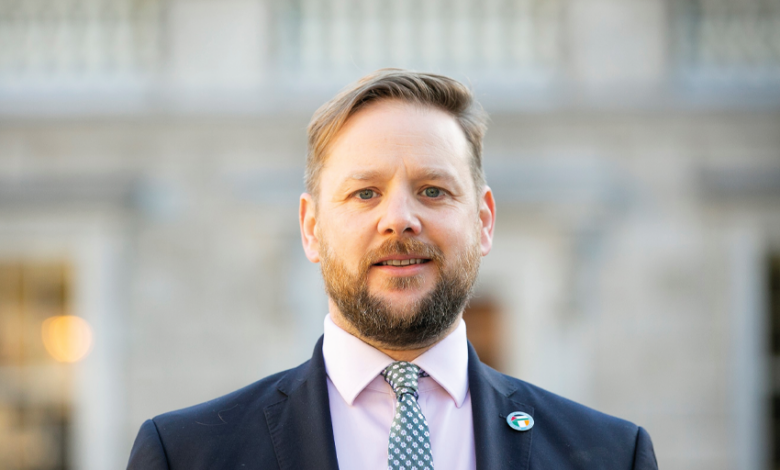Political Platform Patrick Costello TD

Green Party TD for Dublin South-Central, Patrick Costello was elected to Dáil Éireann in February 2020. Previously, he worked as a child protection social worker and was elected to Dublin City Council in 2014 and again in 2019. Costello is married to Green Party Dublin City Councillor, Hazel Chu.
How did your political career begin?
During my time in college I was involved in activism in urban space and the environment, you could say that my political career began there, or at least my engagement in politics in the broader sense. I had been involved in the Green Party – canvassing and helping others get elected – since 2007. However, my own career in electoral politics began in 2013, when I started my campaign for the 2014 local elections.

What are your most notable achievements in the Oireachtas to date?
Since getting into the Oireachtas, I have been campaigning a lot to improve the enforcement on GDPR, particularly against large multinational companies who are exploiting the large amounts of data we give them. I have been working on this issue in a variety of ways alongside other TDs and senators. We have had some successes in that then-Justice Minster Helen McEntee TD agreed to appoint two additional DPCs.
I have also been very proud to have been involved in the Joint Committee on International Surrogacy. We provided an in-depth report with 32 recommendations. All but two of these recommendations have been accepted by government as it moves forward to implementing this legislation as quickly as possible. It is wonderful to see the relief and joy on the faces of families through surrogacy, knowing they will get the legal certainty they deserve.
Perhaps my proudest achievement to date, is the recent Supreme Court victory in relation to the EU-Canada Comprehensive Economic and Trade Agreement (CETA). This is one more step on the road in a long campaign against investor courts but is an important vindication on the place and role of the Irish Courts within the wider legal and legislative system.
“Perhaps my proudest achievement to date, is the recent Supreme Court victory in relation to the EU-Canada Comprehensive Economic and Trade Agreement (CETA).”
Patrick Costello TD, Green Party
What is unique about representing the Dublin South-Central constituency?
Dublin South-Central is a very politically active and informed constituency. All public representatives in Dublin South-Central are kept on their toes by engaged and knowledgeable constituents. At the same time it is a highly diverse constituency, and it is a pleasure and privilege to be able to represent it in the Oireachtas.
What are your priorities going forward?
Before getting elected, I worked as a child protection officer and social worker. I have been on the front lines of child protection work and have seen first-hand the need to improve the conditions to ensure child protection is enforced. I will continue to work closely with the Minster of Children, my Green Party colleague Roderic O’Gorman TD, to address these issues. Whilst my Supreme Court victory on CETA was important, it is just one step on the road in a long campaign against investor courts. Simultaneously, the need to undertake strong climate action and prevent the damage wrought by climate change is a strong priority for me.
How can the Green Party maximise its impact during the lifetime of the current government?
I think we have done well to deliver climate action given we are the smallest government coalition partner. We have built good relationships with all parties, at various levels, and will continue to develop these relationships and work with other to deliver on our aims.
What are your interests outside of the political sphere?
I was in scouts when I was a kid and I have spent a long time as a scout leader and would love to have more time to give back to scouting. Outside of this I am kept busy by an active five-year-old.





